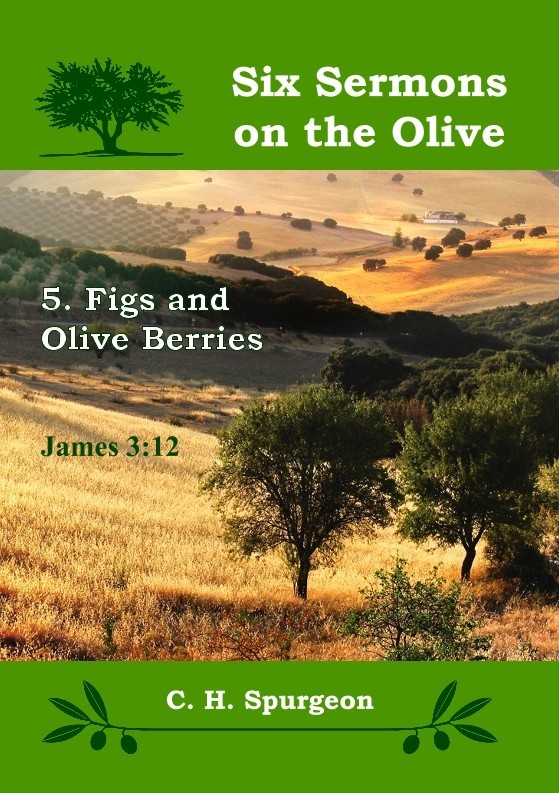
Six Sermons on the Olive - 5. Figs and Olive Berries
By Charles Spurgeon
Extract
Six Sermons on the Olive
C. H. Spurgeon
5. Figs and Olive Berries
“Can the fig tree, my brethren, bear olive berries” James 3:12.
There is only one answer to the question; of course, the fig tree can do nothing of the kind. It would be quite contrary to its nature, and hence the apostle argues that Christians ought, to act according to their nature. If we are indeed the children of God, we should act as his children, and always act as his children. We are not consistent if at one time we speak as heirs of heaven should speak, and at another time speak as the heirs of wrath speak. James truly tells us that a fountain cannot, at the same time pour forth sweet water and bitter, salt water and fresh; and he therefore rightly argues that from the same mouth there must not proceed blessing and cursing, there must be consistency of conduct in those who are the Lord’s. I am going, in the first place, to take the question of our text out of its literal connection; and in the second place to come closer to it; and perhaps in the third place to come closer still. So, first, “can the fig tree, my brethren, bear olive berries?” No; and IT IS VERY UNDESIRABLE THAT IT SHOULD; there is no need for it to do so, and there would be no gain if it should do so. I am, of course, taking the question altogether apart from its connection. A fig tree is better employed in bearing figs than it would be in bearing olives. The olive tree is meant to bear olives, and the fig tree to bear figs, and it, would not be any advantage if it were to leave off bearing figs, and begin bearing olives, or if it alternately bore figs and olives. Now, beloved friends, all of us that are as trees of the Lord’s right-hand planting are bringing forth fruit, to his praise and …